Creating A Compelling Love Triangle
 The love triangle. Let me guess, the first thing that comes to mind is an indecisive teenage girl toying with the emotions of two hunks who are too good for her anyway. Am I right?
The love triangle. Let me guess, the first thing that comes to mind is an indecisive teenage girl toying with the emotions of two hunks who are too good for her anyway. Am I right?
This negative connotation is understandable. If executed poorly, a love triangle can leave the reader feeling annoyed at best (Make up your mind already!), disgusted at worst (Does she EVER think of anyone but herself?!). But allow me to offer a counterpoint. Good or bad, love triangles can certainly keep readers turning pages (am I the only one who can’t rest until I find out which one the character ends up with?) and tend to prompt a lot of discussion and debate. When done well, a love triangle can also give thought-provoking insight into the nature of the human heart. In an ideal world, we would all identify our one true love in an instant, with no cause for confusion or heartache. But love triangles reflect real life in that often romance turns out to be much more complex, as circumstances throw people together and unexpected, sometimes even conflicting, feelings arise.
What is it, then, that separates a compelling love triangle from a frustrating one? I’ve identified four factors that play a critical role: how the love triangle comes about, how the protagonist treats the competing love interests, the duration and prominence of the love triangle within the story, and the way it’s resolved in the end.
As a side note, below the discussion of each factor I’ve included examples of series that handled that particular factor well. The examples come from:
- The Twilight series by Stephenie Meyer
- The Hunger Games series by Suzanne Collins
- The Enslaved series by Katie Clark
- The Selection series by Keira Cass
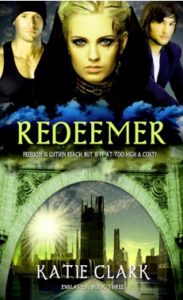
Beware that the examples include spoilers, so you may want to skip over them if you’re planning to read any of these series in the future. And I tend to use female pronouns since each of my examples happens to feature a female protagonist, but the following analysis would apply equally to a male protagonist.
From my perspective, here are the ways in which the different factors play into creating a compelling love triangle:
Formation of the Love Triangle
Let’s face it, the character torn between two love interests has gotten herself into a messy situation. The only way out of her predicament is to break someone’s heart. Therefore, it’s important to examine how the character got into this fix in the first place. If her reasons are understandable, readers will be sympathetic to the character’s plight. If not, readers are more likely to blame her for maltreatment of the rejected love interest. Generally, the more outside factors playing into the creation of the love triangle, the better, as love triangles created by the actions of the character herself tend to be harder to forgive.
Hunger Games: Katniss is content with her close friendship with Gale until the Hunger Games puts her in a dilemma where the best way to help Peeta survive is to pretend to feel more for him than she does, making it hard to fault her for the resulting quandary.
The Selection: America is separated from her first love, who appears to have rejected her, when she is chosen to participate in the Selection, placing her in an understandable position when her friendship with Prince Maxon begins to evolve into something deeper.
Treatment of Love Interests
No one envies the position of competing love interests, right? They’re faced with the turmoil of alternating hope, confusion, jealousy, and fear of rejection. So how the main character interacts with them has a significant impact on the reader’s opinion of her. Is she sympathetic to the pain of the competitors, and keenly aware of her own confusion? Or is she using the love interests for her own pleasure or gain? The answers to these questions can be a distinguishing factor between effective versus ineffective love triangles.
Enslaved: When Hana realizes she will have to choose between conflicting love interests, she continually assesses how her behavior may be hurting each of them, and tries to refrain from physical affection with either until she has sorted out her feelings, thus demonstrating her kindness in the midst of the pain she has inadvertently caused.
Duration and Prominence
Even a love triangle that gets off to a promising start can crash and burn when it comes to this factor. A love triangle that unnecessarily prolongs the misery and confusion of the competing love interests is sure to lose a reader’s sympathy. But length alone (as measured in time or pages) won’t necessarily make or break the love triangle. A related factor is where the focus of the story lies. If the protagonist is saving the world in the midst of conflicting feelings for two different love interests, the reader can more easily forgive her for not making the decision between them her first priority. On the other hand, if the foremost action in the plot revolves around the main character’s interactions with the love interests and her wavering emotions, readers will be much more likely to feel impatient and annoyed if the decision drags on.
Hunger Games and Enslaved: Katniss and Hana are each trying to defeat the leadership of their respective countries, giving them ample excuse to defer the resolution of their love triangles.
The Final Choice
At the end of the day, readers are most interested in seeing how the love triangle is resolved. In order for it to be interesting and suspenseful, both love interests must have qualities the protagonist is looking for and be able to provide a potential future for her. So how is she to choose? Her final decision, and the reasoning behind it, will have a lasting impact on how the reader looks back on the book or series. If the rejected love interest proves too poor a candidate in the end, readers may feel misled, wondering why this negative quality didn’t come out in the character before. On the other hand, if the love interests stay on equal footing throughout, it may be hard for the reader to truly feel happy for the one the protagonist ends up choosing. It is a difficult balance that can make or break the final resolution of the book or series.
Hunger Games: I found Katniss’ choice of Peeta because he represented hope to be the perfect answer given her troubled mindset following her participation in the Hunger Games and the resulting rebellion against the Capitol.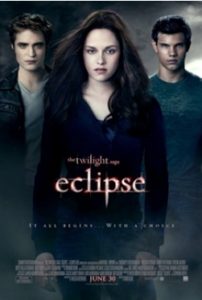
Twilight: While I wasn’t entirely satisfied with Bella’s choice of Edward (I must admit I was on Team Jacob), I have to acknowledge Stephenie Meyer’s creativity in resolving the love triangle in a way that didn’t leave Jacob drifting out of Bella’s life forever with his tail between his legs – pun intended J
Now it’s your turn! Are you a fan of love triangles, or do you avoid them like the plague? What factors do you think contribute to making a love triangle enjoyable versus painful to read? What other examples can you think of, and were they well-executed?
– – – – –
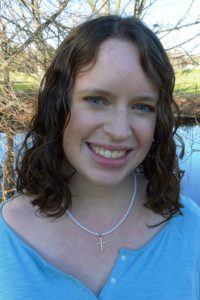
An avid reader since birth (her parents claim she often kept them up until 11:30 p.m. begging to hear just one more story), Laurie Lucking discovered her passion for writing after leaving her career as a lawyer to become a stay-at-home mom. She is an aspiring author of Christian YA romantic fantasy and co-founder of Lands Uncharted, a blog for fans of clean YA fantasy. A Midwestern girl through and through, she currently lives in Minnesota with her husband and two young sons. Laurie enjoys making new friends on Facebook, Twitter, Goodreads, and Pinterest.


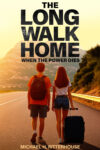
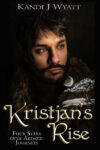


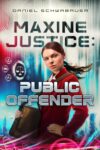
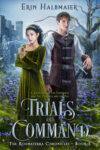
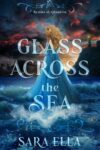
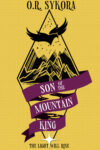
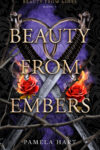
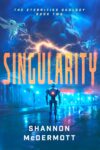








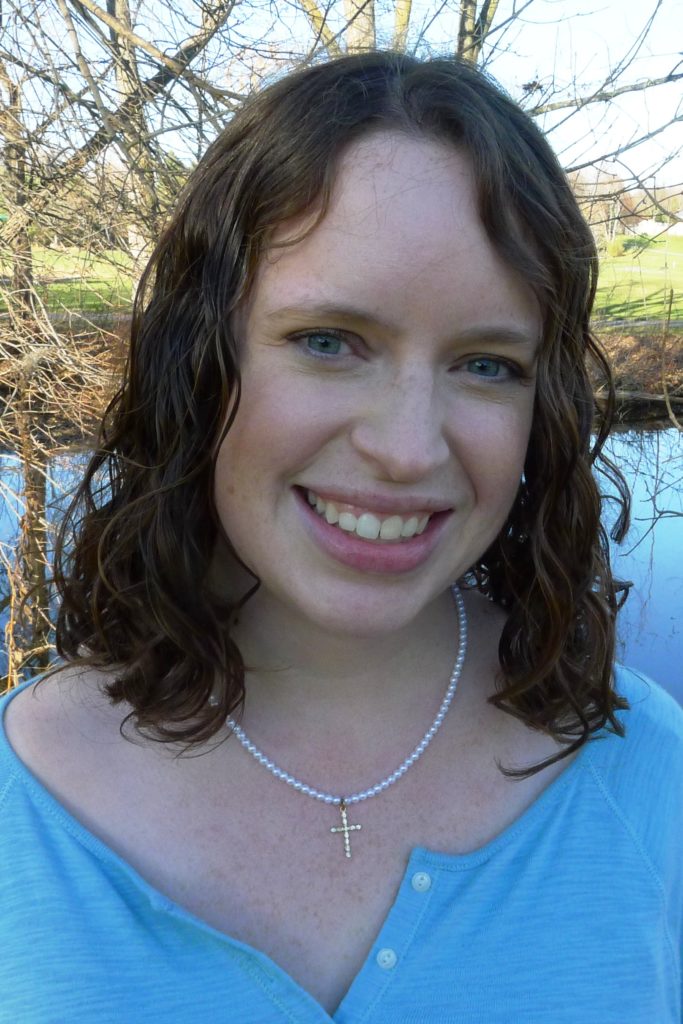
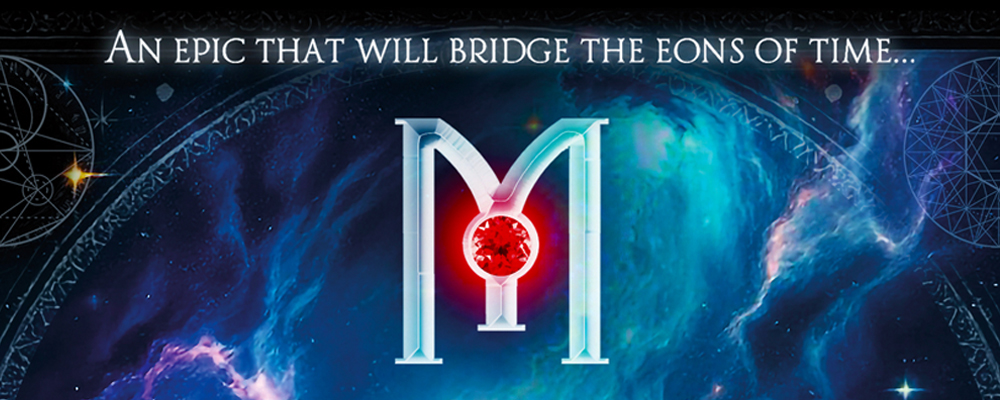

A nicely-balanced article! You don’t often see pro-life triangle articles, so I appreciate this perspective. I think it’s like insta-love/insta-attraction. It’s been done so poorly so many times that the successful attempts are drowned out.
I haven’t found any love triangles I like in fiction. However, on TV I tend to be a lot more lenient and accepting towards them. I’m not sure why. Hmmm. Maybe because on most of the TV shows I watch, the love triangle isn’t the star at all. It just happens and it’s another issue for the main characters to deal with–a side issue. I prefer romance used for it’s ability to complicate the plot, add humor/awkwardness, and deepen characters. I don’t enjoy romance for the sake of sighs and long descriptions of physical attractiveness (which is often how it’s used in YA).
Haha, amendment – “pro-love triangle articles.” 😉
Hehe, I didn’t even notice it the first time I read through your comment 🙂
Thanks for your comment, Janeen! I think you’re absolutely right that love triangles have been done poorly enough times that readers have lost patience with them. You make a great point about TV shows – I haven’t heard nearly as many gripes about love triangles in that medium, and your explanation that they tend to a side issue in TV shows is spot on. A TV show revolving around a love triangle would be hard to watch episode after episode! Personally I’m a big romance fan, but I’m with you on the long-winded physical descriptions – they get old very fast!
Nope, Twilight did nothing well. Ain’t gonna convince me that pedo-flavored fixation on her nearest relation is okay. Or did you mean his insistence on her protection? Because that’s not enough of a redeeming quality for me.
Thanks for commenting, Leah! I found the idea of imprinting fascinating, along with the notion that he would fill whatever role she needed at the stage of life she’s in, though I admit in practice it bordered on creepy when young girls were involved. I credit Meyer for finding a creative solution for keeping Jacob close to Bella practically as part of her family (as opposed to most love triangles, where the rejected love interest fades out of the protagonist’s life completely, leaving a void), even though the mechanics of that solution may have been flawed.
As a side note, Leah is the name of my main character in my WIP 🙂
Leah is also the name of my character in one of my books too! Go Leah!
Ha, how fun! It’s a great name 🙂
I’ll admit I’m biased because I run in the sort of circles where consent is a Very Big Deal, and the thing with imprinting is that it’s pretty much the antithesis to choice and consent. Not to mention it traps Nessie in a horrible nest of emotional/sexual coersion where she will always be seen as being responsible for Jacob’s emotional/sexual needs whether or not she sees him That Way. WHAT ABOUT NESSIE’S WANTS AND CHOICES, HUH? And there is something uniquely squick about a CHILD being groomed to fulfill the needs that an adult should be getting from another freakin’ adult. Their relationship is inherently unequal like whoa.
#downwithpatriarchy
I guess I prefer to think of it that if Jacob really loves Nessie that much, he would be willing to let her go if he sensed that she didn’t feel the same way about him as she got older. But I see your point, it definitely puts her in a difficult position even if she is free to turn him down. With Nessie being so young at the end of the series, I suppose Meyer didn’t necessarily think through all the potential ramifications of setting up that relationship the way she did.
My problem with the idea of imprinting is its negation of free will. I was always taught that love only has value if you choose it–that a world of robots who only loved because they were programmed to was not really love. It would be one thing if Jacob chose to put Nessie and her needs above his own. But he didn’t. Imprinting made him.
Interesting! I had just thought of imprinting as having your ideal life partner pointed out to you, but you’re right, even in that case they should be free to choose whether to care for that person or not. I’m seeing imprinting in a whole new light after these discussions! Thanks for commenting!
Being a romance junkie, I like love triangles but sometimes they get a little messy and you’re like, I don’t know who to vote for. I was reading a series of books by an African American author Adrienne Thompson, who wrote the “Latter Rain” series focusing on women 45+ who are starting over again in relationships. In the second book, one of the men was her former love of her life who got her pregnant and then left her. The other guy was a very nice man who pursued her. The character couldn’t decide between the two. It made for a roller coaster of a read because you were just as confused as she was.
It’s not often you see a love triangle between older characters (I guess people think sex and love stops after 39 or something) so it was a refreshing to see it from a different perspective.
Twilight bored me to death. I read the first book and wanted those hours of my life back.
I would never want to be in a love triangle though in real life. Too messy.
It’s nice to find a fellow love triangle fan! Though I know what you mean about feeling torn between the love interests – they can be stressful to read! The “Latter Rain” series sounds so interesting, I love the idea of a love triangle involving older characters, because you’re right, it’s not like romance is only experienced by people in their teens and twenties 🙂 And I’m totally with you, I would never want to be involved in a love triangle in real life – if they mess with our emotions so much in books, how much worse would it be if it were really happening? Thanks for commenting, Parker!
If you want to read a YA/New Adult Fantasy series with a REALLY good love triangle, you gotta check out my friend Mary E. Twomey’s Undraland series. The first book is free. I love her work. It’s not a Christian series. It’s a good read though.
Thanks for the recommendation, I’ll have to check out that series! I was impressed by the love triangle in the Enslaved series, which I used for a few of the examples above – that’s actually what inspired me to write this post 🙂
Thanks for a fun article! You made me think of love triangles in a new way. I like your four criteria for a “good” love triangle. I think the idea that there isn’t just one perfect match out there for you is a bit comforting and makes love triangles resonate with readers. But I have to agree with everyone, being in would be miserable!
On a side note, I have to say I really liked the Twilight series, even though I’m too old for it. : ) A guy who was committed to abstinence (in more than one area) was a refreshing hero for a YA novel. Also, after reading your post, I think the series lends itself to discussion about how Bella treated Jacob. Readers can learn lots from likable, sympathetic characters. : )
Thanks for your comment, Erin, I’m so glad you liked the post! It’s nice to hear someone willing to put in a good word for Twilight 🙂 I enjoyed that series, too, despite it’s flaws. I agree that it was refreshing to see a positive portrayal of the values of abstinence and self-control in a society that tells us to do whatever feels good. And while I’m not sure the love triangle would fare very well in most of the factors I laid out, it did keep me interested and the Edward vs. Jacob debate has been pretty epic!
I’ve heard it said, and I think there’s some truth to it, that love triangle stories aren’t about the MC choosing between two loves so much as choosing the kind of person they want to be.
To go back to your Hunger Games example, Katniss loves both Gale and Peeta in different ways, and they all go through extremely traumatic and even shattering experiences in the course of the trilogy that draw them together and push them apart, leaving the reader in suspense as to how it will resolve. But by the end of the story Gale has come to represent violence and ruthlessness while Peeta represents peace and gentleness (or at least the desire for it), and Katniss, who is sick of fighting, chooses the latter. Given all she’s been through, her decision makes sense.*
Nevertheless, all the stories you’ve mentioned aren’t actually love triangles — they’re merely angles, in that both love interests are connected to the MC, but not to each other. The classic love triangle a la Arthur-Guinevere-Lancelot, where all three people involved have deep feelings and loyalties to one another that pull them ALL in different directions, is much, much rarer and harder to write. (Especially in the modern age, where many people cling to the warped assumption that any deep love between members of the same sex must “really” be sexual deep down, and if it’s not, it’s not as strong or deep or compelling enough to matter. In other words, our society doesn’t get Arthur & Lancelot’s loyalty and heartfelt friendship at all, and barely gets Arthur and Guinevere’s marital love and sacred duty to one another either — all the modern King Arthur adaptations go wild over the “forbidden passion” of Lancelot and Guinevere instead, which reduces Arthur to a stodgy third wheel instead of an equal point on the triangle.)
—
I’d never heard the saying about love triangles being less about the MC choosing between two love interests than deciding what kind of person they want to be, but it’s a great way to think of it! Because it’s so true – the decision between two potential partners reflects a lot about what the character values most and what they want their future to look like.
I was a Peeta fan, mostly for his self-deprecating sense of humor. I love a man who can make me laugh 🙂 But Katniss definitely had a lot of chemistry with Gale, though I think that could’ve been enhanced if scenes like their kiss had been told as it was happening instead of as a flashback. The fact that so many critical Gale moments were told as flashbacks made me feel more distant from him, which helped give Peeta the edge for me.
I feel like the connotation of “love triangle” has evolved such that most readers today would define it as one character torn between two love interests, but you’re absolutely right that in order to form the full triangle there would need to be some kind of bond between the love interests as well. You bring up a great example of the classic Guinevere – Arthur – Lancelot love triangle, and I agree that the depth and complexity of the relationships there would be difficult for an author to pull off in a way that modern readers would appreciate. I hope someone tries, though, I’d be very curious to read it!
Thanks for your insightful comment, R.J.!
Excellent addition to the discussion! I like the perspective that it’s about the MC choosing who s/he wants to become. The example of Arthur/Guenivere/Lancelot is meaningful as well. The Arthur-Lancelot relationship made the affair so much more charged with emotion. Lancelot was not just involved in adultery, but in betraying his friend and king. Kind of reminds me of David/Bathsheba/Uriah, except backwards. Who comes first–friend or lover?
Speaking of which, the Bible has a few really interesting love stories from which to draw. In the story of Ruth, the idea of the man who had the greater claim versus the man who had the greater love is particularly compelling to me.
Thanks for pointing out these Biblical examples, Yaasha! It hadn’t occurred to me to look to the Bible for ideas for this post, but there are some great love stories there!
Usually I am not a fan of love triangles, especially when it involves one girl and two guys. “Oh my word, of course she is the most eligible and desirable woman in history, because she has, not one, but TWO hot men competing to be her beau!”
But the things you pointed out were well worth considering because, truthfully, the love triangle has been demonstrated masterfully in some instances and can intensify a story’s emotion. Honestly, I can’t think of any good ones from modern literature or speculative fiction, but if you’ve ever read Cyrano de Bergerac… THAT was a love triangle done spectacularly well. Of course, you’re rooting for Cyrano the whole time, but his selflessness and vulnerability makes him a hero you can sympathize with. He is constantly weighing his desire for the girl against the duties of honor and against his desire for Roxanne’s ultimate happiness. He could have it all, but chooses not to. There is something exceptionally manly and noble about a guy who would do that.
(Maybe that’s why I get irritated with love triangles–two guys falling all over themselves to impress the same girl just does not impress me with their manliness.) Just my thoughts!
I love Cyrano de Bergerac! It was such a creative spin on the typical love triangle, and executed so well. Cyrano is one of the best romantic heroes ever created.
Your last point has me thinking that perhaps I should’ve added another factor – how the love interests conduct themselves. Because you have a great point, the love interests can be just as annoying as the protagonist if they’re poor sports or too desperate.
Thanks for commenting, Yaasha!
I like love triangles sometimes. Usually it’s a matter of there being something about the characters that interests me, or the plot of the story and how well it is written. I want the characters to be deep and complex. I don’t feel like every char in a triangle has to be kind to each other all the time, because now and then I think it’s realistic for someone’s negative traits to show up due to a current lack of maturity or the heightened emotions that come out during a stressful love triangle.
As for what I’m writing, there’s a possible love triangle that might take place with a character I wrote. She’s an assassin that’s kind of a loner due to her upbringing(We’ll just call her T) When T was little she had a best friend who wasn’t an entirely good person, but T was still loyal to him none the less. That friend was targeted and made fun of by one of the people T trained with when she was younger. The person who bullied T’s friend had a crush on her, and the bully isn’t a bad person, but he still has his own problems. He can be a slightly jealous person, which prodded him to make fun of his crush’s best friend. Not only was T a little creeped out(she was young and never dealt with someone having a crush on her before) but she didn’t take kindly to the guy making fun of her best friend. So T was kinda hostile, because she wasn’t happy with the way the guy with a crush acted and because she didn’t have the maturity to understand the guy’s feelings and maybe address them in a more mature way. I haven’t entirely decided how that part of T’s story turns out. I know that she and the guy that made fun of her best friend will grow and mature past some of their flaws. I know that a lot of tragic things will happen that might make T desire to be alone. But I don’t know if I will have her end up married or in love with anyone. I think that one thing people might feel when thrown in a love triangle is that by need to pick one of those two people, when they really don’t. I will probably explore that in the story I just mentioned or another one.
Thanks for commenting, Autumn! You’re right that it would be unrealistic to expect the people involved in a love triangle to treat each other well 100% of the time when they’re experiencing that kind of emotional rollercoaster. I enjoyed hearing about the story you’re working on, it sounds like you have the potential for a really interesting love triangle to develop! And I love your idea of exploring a love triangle in which the main character doesn’t end up picking either of the love interests, because you make a great point, just because they have two people to choose from doesn’t mean that either one is necessarily the right choice.
I wrote a story recently with a love triangle as a central element, except the love triangle had already resolved and the woman at the point of the triangle had just died. I wound up talking very little about any of the criteria you list – the formation of the triangle, her treatment of the men, how long it lasted, how she chose, etc! The story was more about the two men who had competed for her: How did they think of her? How did they treat her? What was their own relationship like, and what should it be now that she’s dead? In the end they realize that neither of them were actually great choices, and it’s ambiguous what the woman actually felt about the man she married. So I think it wound up being a different kind of simpler variation on the full, classic Arthur-Lancelot-Guinevere type of triangle that R.J. Anderson discusses. The popular triangle these days focuses on relationships between chooser and options; my story focused on the relationship between options; a classic triangle would fully develop both kinds of relationships.
As for stories I haven’t written… 🙂 He hasn’t gone through with it yet, but I think Brandon Sanderson is setting up a classic love triangle in his series the Stormlight Archive involving two of the main characters and a major side character. He’s been developing strong relationships between each person involved, and they’re all tied to each other somehow by their roles in life. But more importantly, I think, they’re each strong characters in their own right – they have too much individual personality and motivation at this point to be reduced to mere players in a romance. If Sanderson goes through with it, it’s going to be complicated and messy and tangle up lots of other plot lines – but if he pulls it off it could add a lot to his characters. I’ve generally been impressed with how Sanderson writes romances, though he’s never written a triangle like this before, so I’m looking forward to seeing how it all plays out! Especially because he likes to resolve his romances some time before their series end, so you get to see how the relationships actually turn out.
What an interesting idea, to show the love triangle on the other side with only the competing love interests left. I can see how that would really change the dynamic of where the focus lies and how the characters interact. I’m really enjoying seeing all the different directions writers have taken with this!
I’ve never read anything by Sanderson, but I’ll have to check him out – it sounds like he has quite a complex love triangle brewing! I like books where you get to see how the relationship actually turns out, too. How the characters act once the courtship is over says a lot about them and their relationship.
Sanderson’s original Mistborn trilogy has a romance that starts a bit weakly, but really develops in the second book and becomes a beautiful relationship by the third. In general his romances tend to be quite cerebral and based around character arcs, with little physical element or mushiness. Some people find his writing cold or awkward, but it works for me 🙂 The Stormlight Archive is the first time I’ve actually hoped for a love triangle!
Good to know, thanks for the recommendation! Ha, that’s saying something that you’re hoping for a love triangle to develop – they must be great characters 🙂